Know Your Basic Rights with Police Encounters
Did you know that in a study conducted in Canada, it was revealed that only 43% of Canadians are aware of their basic rights when dealing with the police?
When it comes to interactions with the police, it is crucial to understand your rights. Being informed about your legal rights during police encounters can have a significant impact on the outcome of these interactions. By knowing your rights, you can confidently navigate any situation involving the police and ensure that your rights are respected.
Key Takeaways:
- Understanding your basic rights when dealing with the police is essential.
- Police interactions can occur under different circumstances, including suspicion of a crime, witnessing a crime, or while driving.
- You generally have the right to refuse to answer police questions, but it’s recommended to consult with a lawyer before doing so.
- The police can only search you or your property under specific conditions, and you can object to an unjustified search.
- When arrested, you have the right to be informed promptly, retain a lawyer, and remain silent until you’ve spoken to a lawyer.
When Can the Police Stop You?
According to Canadian law, police officers can stop you under three general circumstances:
- If they suspect that you have committed a crime
- If they witness you committing a crime
- If you are driving
If the police do not have grounds to arrest or detain you, they must let you go. It is important to ask if you are under arrest or detention to understand your situation.
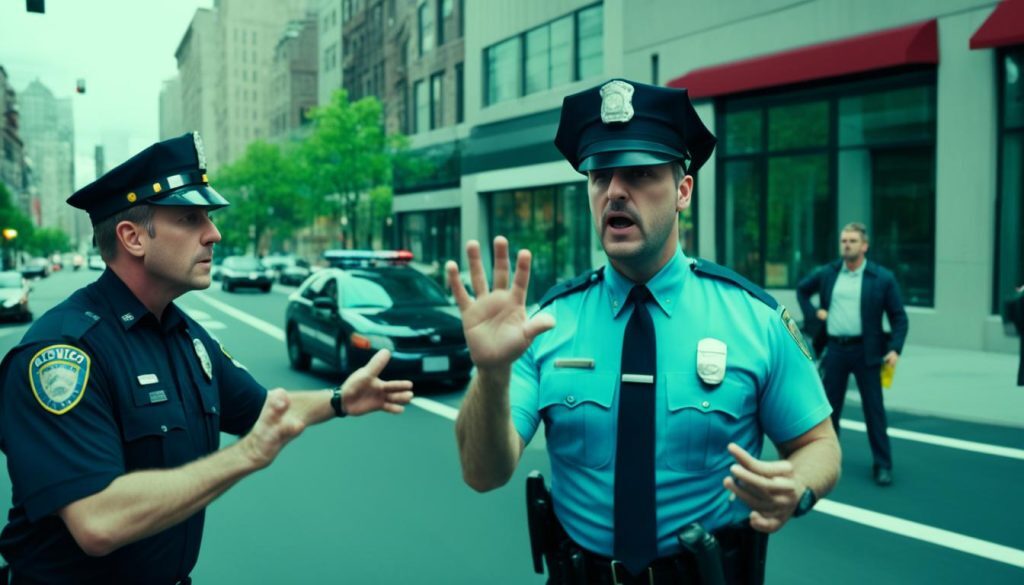
| When Can the Police Stop You? | What You Should Know |
|---|---|
| If they suspect that you have committed a crime | Police officers can stop you if they have reasonable grounds to suspect your involvement in a crime. They may ask you questions or request identification. |
| If they witness you committing a crime | If the police witness you engaging in criminal activity, they have the authority to stop you immediately and take appropriate action. |
| If you are driving | While driving, the police have the right to pull you over for various reasons, such as enforcing traffic laws, conducting sobriety checks, or checking the validity of your driver’s license, registration, and insurance. |
Do You Have to Answer Police Questions?
In most cases, you have the right to remain silent and do not have to answer police questions if you don’t want to. It is important to remember that anything you say can be used against you in a court of law. However, it is always a good idea to be polite and respectful when interacting with the police.
If you have been involved in a car accident, refusing to provide answers to basic questions such as your name, contact information, and insurance details could result in legal consequences. It is usually in your best interest to cooperate and provide this information to ensure a smooth process.
It is important to know that if you are detained by the police, they must inform you of your right to talk to a lawyer. It is generally recommended to consult with a lawyer before answering any questions from the police. They may offer valuable guidance and ensure that your legal rights are protected during the questioning process.
Consulting a Lawyer
When you exercise your right to consult with a lawyer, you are given the opportunity to seek legal advice before providing any statements or answering questions that could potentially incriminate you. This can be especially crucial if you are a suspect in a criminal investigation.
A lawyer can help you navigate the complexities of the legal system, inform you of your rights, and provide guidance on how to proceed during police questioning. They will ensure that you make informed decisions while protecting your legal interests.
Remember, it is always wise to consult with a lawyer before answering any questions from the police. They can provide you with personalized advice based on your specific situation and help safeguard your legal rights.

By understanding your legal rights when dealing with the police, particularly during questioning, you can make informed decisions and protect yourself. Always consult with a lawyer if you have any concerns or doubts about the information you are being asked to provide.
Can the Police Search You or Your Property?
When it comes to police search rights, it is important to understand your legal rights when dealing with the police. In Canada, the police can only search you or your property under specific circumstances:
- If you have been placed under arrest
- If you have given them consent to search
However, it’s crucial to note that there are exceptions to these general rules. For instance, if the police have reasonable suspicion that you are in possession of illegal drugs or weapons, they may conduct a search without your consent.
If you believe that you have been subjected to an unjustified search, it is within your rights to inform the police that you object to the search. Afterward, it is advisable to consult with a lawyer who can provide you with guidance on how to proceed.
What Happens When You Are Arrested?
When you are placed under arrest, it is essential to understand your rights and what to expect. One significant aspect of being arrested is that the police have the authority to search you, your clothes, and anything you are carrying. This search includes your immediate surroundings, such as your vehicle if that is where you were arrested. The purpose of the search is to ensure the safety of the police and the public, preserve evidence, and potentially uncover evidence related to your guilt or innocence.
It is crucial to be informed promptly of the reason for your arrest. If you are unsure, you have the right to ask the arresting officer for clarification. Additionally, remember that you have the right to remain silent until you have spoken with a lawyer. This means that you have the freedom to choose not to answer any questions the police may ask you. Exercise this right to protect yourself and consult with a lawyer as soon as possible.
During your arrest, it is important to remain calm and cooperative. Resisting arrest or behaving aggressively can lead to further legal complications. Remember that your actions and words can be used against you in court, so it is wise to be mindful of what you say and how you behave.
After your arrest, you have the right to contact a lawyer. If you do not have a lawyer, you can ask the police to provide you with the opportunity to speak to a Legal Aid lawyer. They will provide you with guidance and ensure that your rights are protected throughout the legal process.
Being arrested can be a stressful and overwhelming experience. Knowing your rights and understanding the procedures can help you navigate this situation more confidently. Always remember that you have the right to legal representation and the right to remain silent. By exercising these rights, you can ensure that your legal rights are upheld and that you are treated fairly throughout the legal process.
Interactions with the Police While Driving
When it comes to police interactions while driving, it’s essential to be aware of your legal rights. The police have the authority to stop cars at any time for various reasons, including determining if a driver is impaired, checking for mechanical safety, validating driver’s licenses, and verifying insurance.
If you are pulled over by the police, it is important to comply with their requests. They may ask to see your driver’s license, car registration, and proof of insurance. Refusing to provide this information can result in legal consequences.
Being polite and cooperative during this interaction can help ensure a smoother process. Remember, it’s your right to ask questions if you are unsure about the reason for the stop or need clarification on any issues.
It’s also crucial to note that if the police have reasonable grounds to suspect you are impaired by drugs or alcohol, they may ask you to provide a breath sample for testing. Refusing to provide a breath sample without a reasonable excuse can lead to criminal charges.
Understanding your legal rights during police encounters while driving can help you navigate these situations confidently and appropriately.
| Important Points | Actions to Take |
|---|---|
| Comply with the police’s request to see your driver’s license, car registration, and proof of insurance. | Provide the requested documents when asked. |
| Remain polite and cooperative during the interaction. | Answer any questions asked by the police in a respectful manner. |
| Ask for clarification if you are unsure about the reason for the stop or any other issues. | Politely inquire about the reason for the stop or any concerns you may have. |
| Understand that if the police suspect impairment, they may request a breath sample for testing. | Cooperate with the police if they ask you to provide a breath sample. |
Police Encounters at Home
When it comes to encounters with the police in your own home, it’s important to be aware of your legal rights and how to navigate these situations. Understanding your rights can help ensure that your interactions with law enforcement are handled appropriately and in compliance with the law.
Under normal circumstances, the police require a warrant to enter your home. However, there are exceptions to this rule. In urgent situations where there is a risk of harm or danger, the police may enter your home without a warrant. Additionally, if you or someone with authority has given permission for the police to enter, they can do so.
If the police have a valid search warrant, they have the authority to search your home and seize items that are illegal or may be used as evidence. It is important to ask to see the search warrant to confirm its validity.
In these situations, it is crucial to cooperate with the police as required by law. However, it is equally important to understand and exercise your legal rights during the encounter. This includes remaining calm, not obstructing the search, and refraining from making any self-incriminating statements.
Knowing your rights when dealing with the police can help protect your legal interests. If you believe that your rights have been violated during a police encounter, it is advisable to consult with a lawyer to understand your options and legal recourse.
| Your Rights at Home during Police Encounters | Key Points |
|---|---|
| 1. Generally, police need a warrant to enter your home. | • Exceptions exist for urgent situations and with permission from you or someone else with authority. |
| 2. Police may search your home with a valid search warrant. | • They can seize items that are illegal or may be used as evidence. |
| 3. Always ask to see the search warrant. | • Ensure its validity before cooperating with the search. |
| 4. Cooperate with the police as required by law. | • Remain calm and avoid obstructing the search. |
| 5. Exercise your right to remain silent. | • Refrain from making self-incriminating statements. |
Your Rights When Arrested
When you find yourself in a situation where you are being arrested by the police, it is crucial to know your rights. First and foremost, you have the right to be informed promptly of the reason for your arrest. This information is essential as it allows you to understand the charges being brought against you and enables you to make informed decisions moving forward.
Another crucial right you possess is the right to retain and instruct a lawyer without delay. Seeking legal counsel is vital to ensure that your rights are protected and that you receive fair treatment throughout the legal process. It is recommended that you exercise this right as soon as possible to obtain the necessary guidance and support.
One of the most important steps to take when arrested is to exercise your right to remain silent. By doing so, you protect yourself from potentially incriminating statements and allow your lawyer to handle the legal proceedings on your behalf. It is essential to consult with a lawyer before answering any police questions to ensure that you fully understand the implications of your statements.
The police are obligated to provide you with access to a lawyer and inform you about Legal Aid and your right to free legal services. Take advantage of this opportunity to speak with a lawyer in private, discussing the details of your case confidentially. By doing so, you can be confident that your legal rights are being protected throughout the process.
- The Role of Police in Community Safety & Unity - October 6, 2025
- Quebec Police Officer Salary Insights 2023 - July 13, 2025
- Canada Arrest Protocol: What Police Say Upon Arrest - June 12, 2025
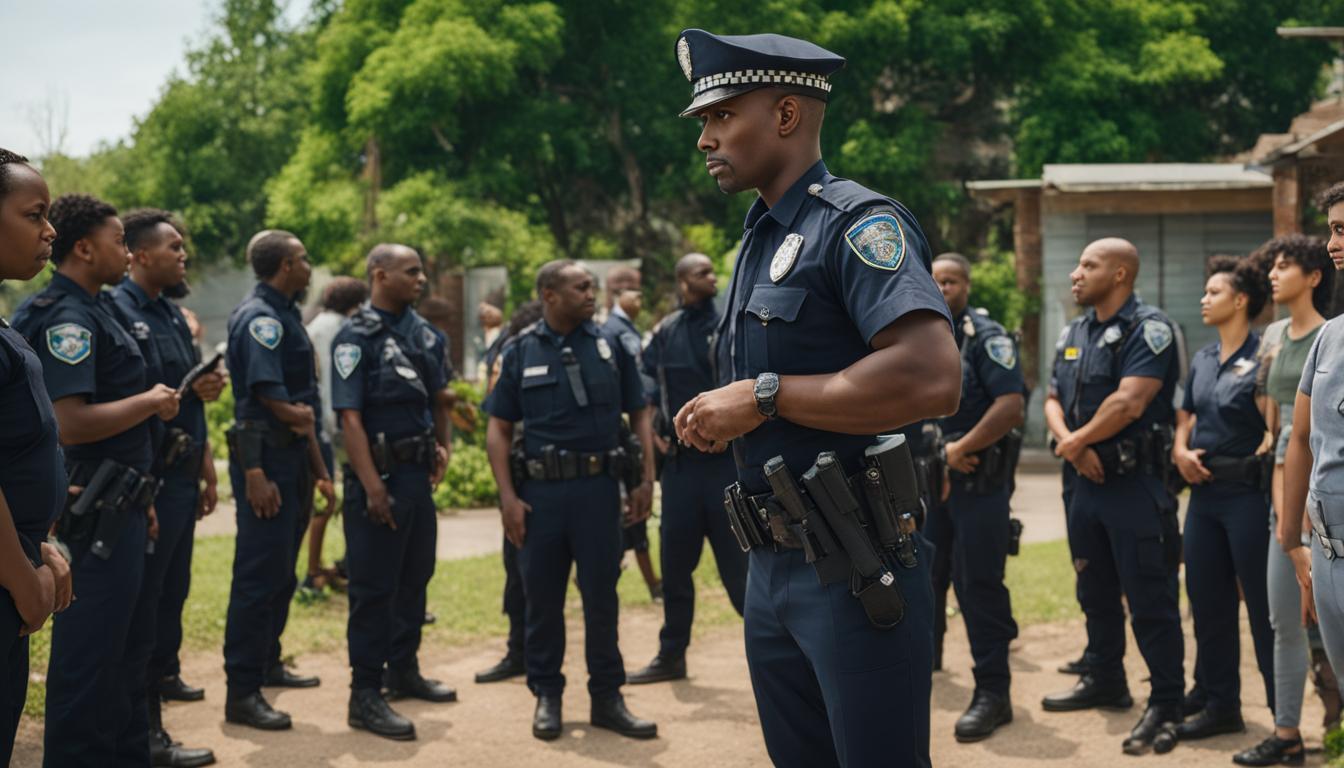

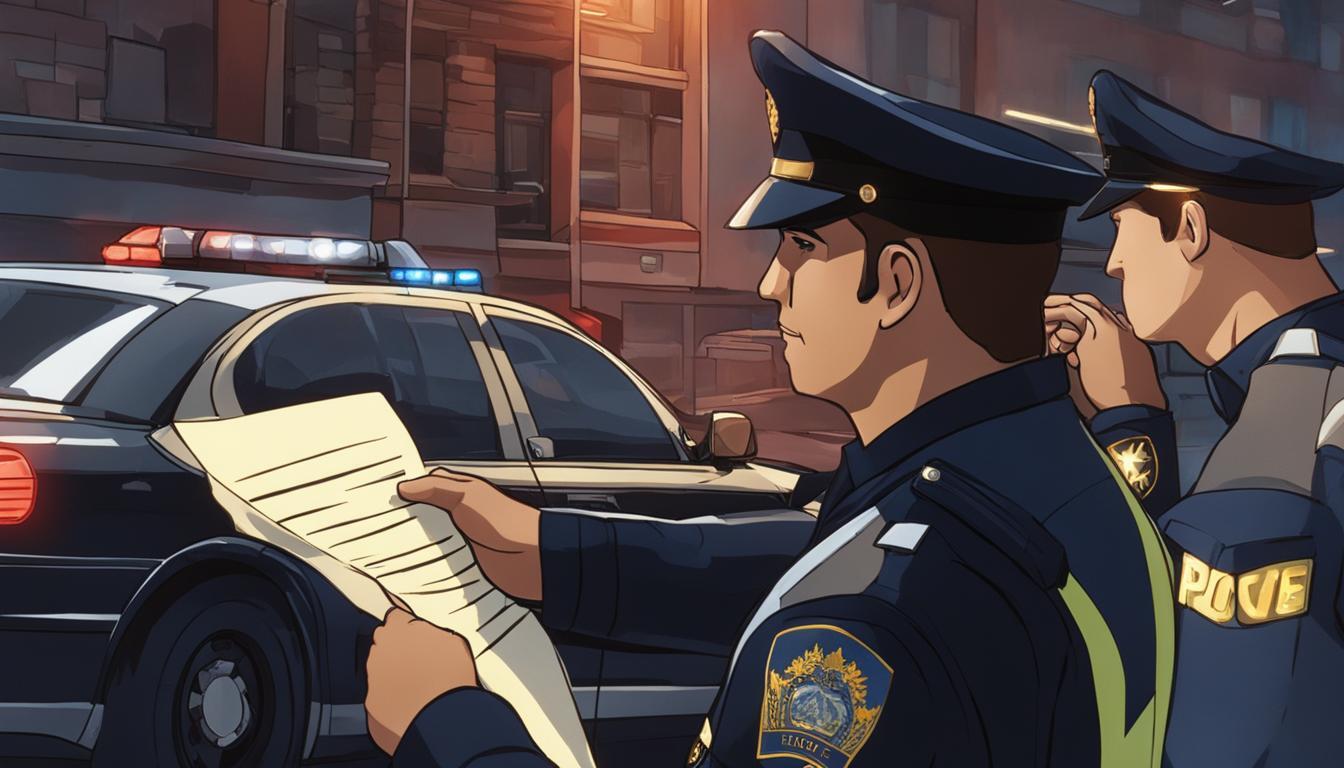


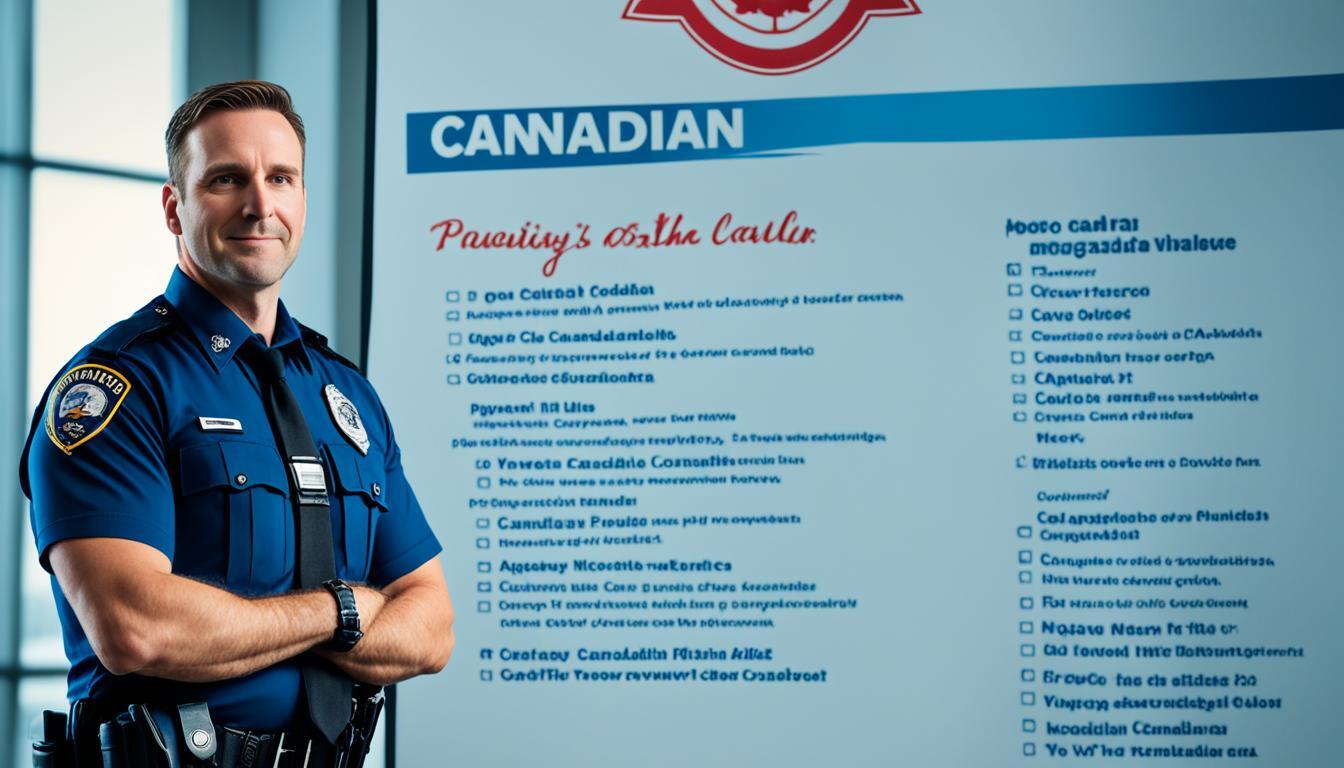

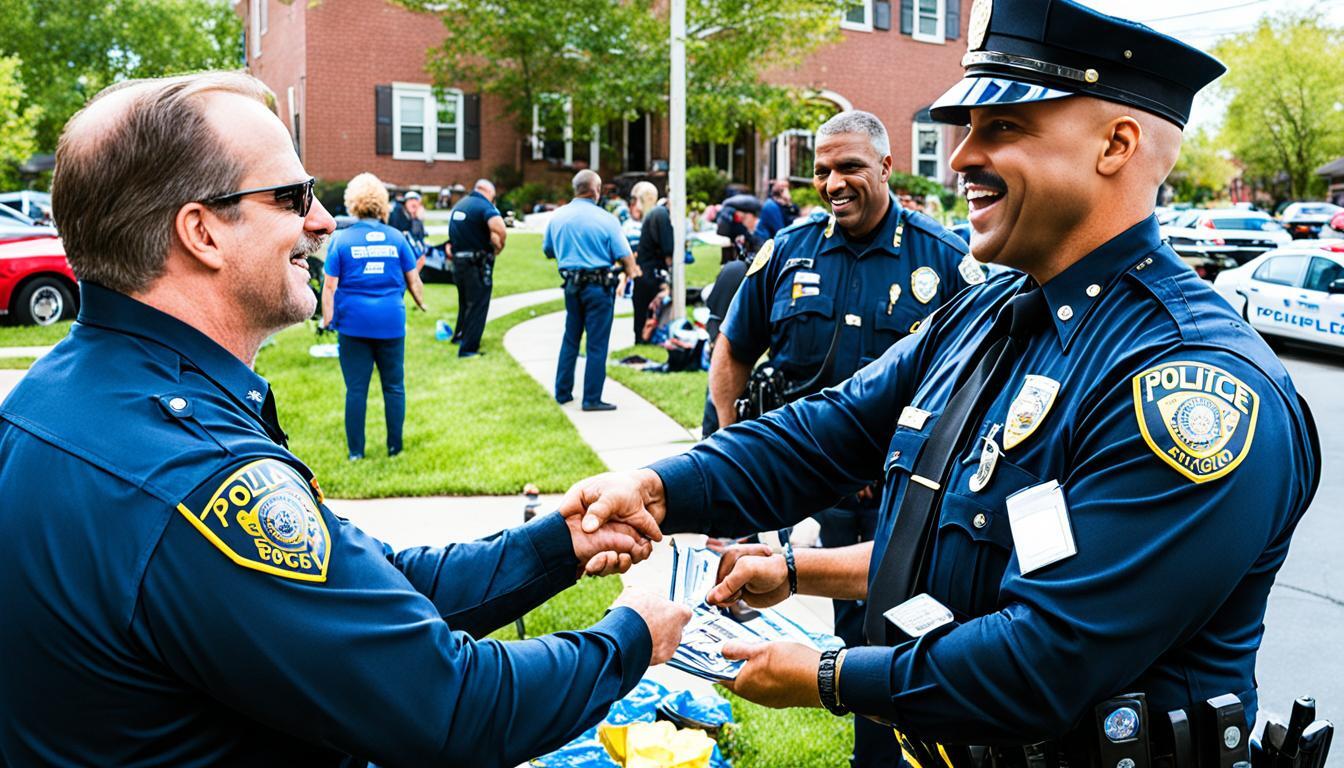











Post Comment